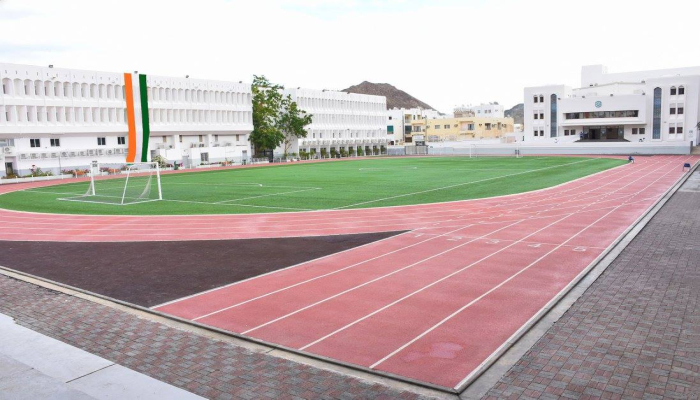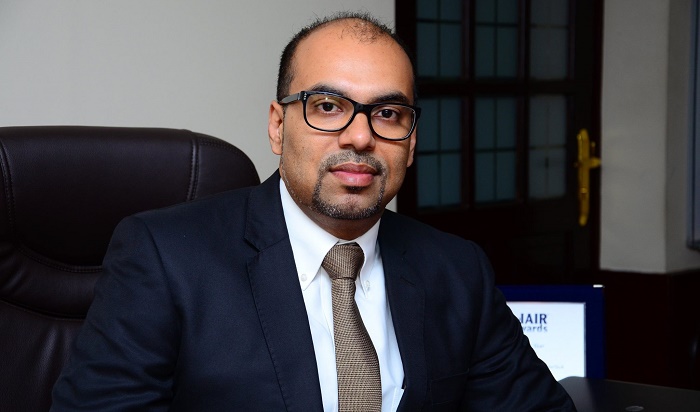

Ensuring students are able to continue their education even while schools were shut due to the COVID-19 pandemic, and moving all academic and extracurricular activities online, are among the achievements the current Board of Directors of Indian Schools in Oman will most fondly remember when their term ends this April. Board Chairman Dr Baby Sam Saamuel, tells Times of Oman how they did it and what are the future plans of Indian schools in the country.
Q: The current Board took office in April 2018. After a period of 3 years, you shall soon hand over the reins to a new management from April 2021. How has your journey been? As Chairman, how has the term been as the Head of the largest community schooling system in Oman?
A: The past three years of the Board term has been unprecedented. COVID-19 itself has been an unprecedented disruptor. For the first time ever, all schools were mandated to be closed due to the pandemic. The Board term had to be extended by a year, due to this sudden crisis that erupted towards the end of our term. Remote schooling became a new normal, for the schools, parents and the students too.
But the first two years of our term also gave us ample time to develop and implement various strategies, which, looking back now, seems to have paid off by preparing us for a quick transition to remote schooling.
What we did in 2018 was to begin our term with a set of goals in hand – Vision 2020 – an action plan for the term that would strengthen every aspect of our schooling – the core academics, extra-curricular and 21st Century skill development, the infrastructural and faculty development, the operational processes of the schools and so on. It is matter of great satisfaction that we have been able to achieve all of these that we set out to do, implementing more than 45 initiatives under this Board.
Leading the largest community schooling network as the Chairman and as the Board, the conscious focus has always been to keep children at the centre of all our decisions and plans. At the same time, as community schools, we needed to ensure the wellbeing of all our stakeholders – our teachers, faculty, parents and the system at large. Achieving this balance is tough, especially given the diversity abound in our system – but we believe we have been able to do so. Overall, the term has been a challenging, yet satisfying one, pushing us all to adapt to new normal and make the best of the given situations, and enabling us to create long-lasting impact.
Q: As you hand over to a new management, what are the biggest achievements so far for the Board?
A: The successful transition to remote schooling, completing an entire academic term with minimal hiccups would definitely be one of the biggest achievements of the Board. Indian Schooling system has set an example in this direction as a successful model in terms of adapting technology to meet the needs of children. This seamless transition was supported by the various initiatives of the board that began in 2018 itself.
Equally important is the completion of the Vision 2020 plan, with 45+ initiatives to bring about holistic education. We have launched academic oriented initiatives such as ISO-VLE, Video Lessons, Remedial Classes, tele-tutoring among many others.
Q: One of your biggest challenges no doubt would have been the COVID crisis. How did the Board and schools manage it?
A: The sudden closure was unexpected and sudden, giving us no time for preparation. Hence, the first priority was to establish access to educational resources for senior grade children, which we accomplished by expanding the video recorded lessons already available by then on the Virtual Learning Platform ISO-VLE. This was in March 2020. Simultaneously individual schools were exploring the different options available to start remote schooling for their students. By April end when the Indian Schools commenced the new academic year, all the schools underwent full transition to various virtual platforms. All 21 Indian Schools across the Sultanate were equipped with virtual platforms and the teachers were trained to conduct online classes for the students from Kindergarten to Grade 12.
At the same time, as community schools, we also needed to offer relief to parents as the situation demanded. Despite our own financial challenges, we have supported our community in every way we could and offer a series of relief measures to the extent of OMR1.3 million. This included deferment of fee hike and various kinds of fee concessions. Additionally, every school had a Help Centre with specific hotline number, to help parents and students to deal with crisis. Over 200 families across the schools were provided with family food kits in association with Indian Embassy, Muscat.
(To be continued in part two)